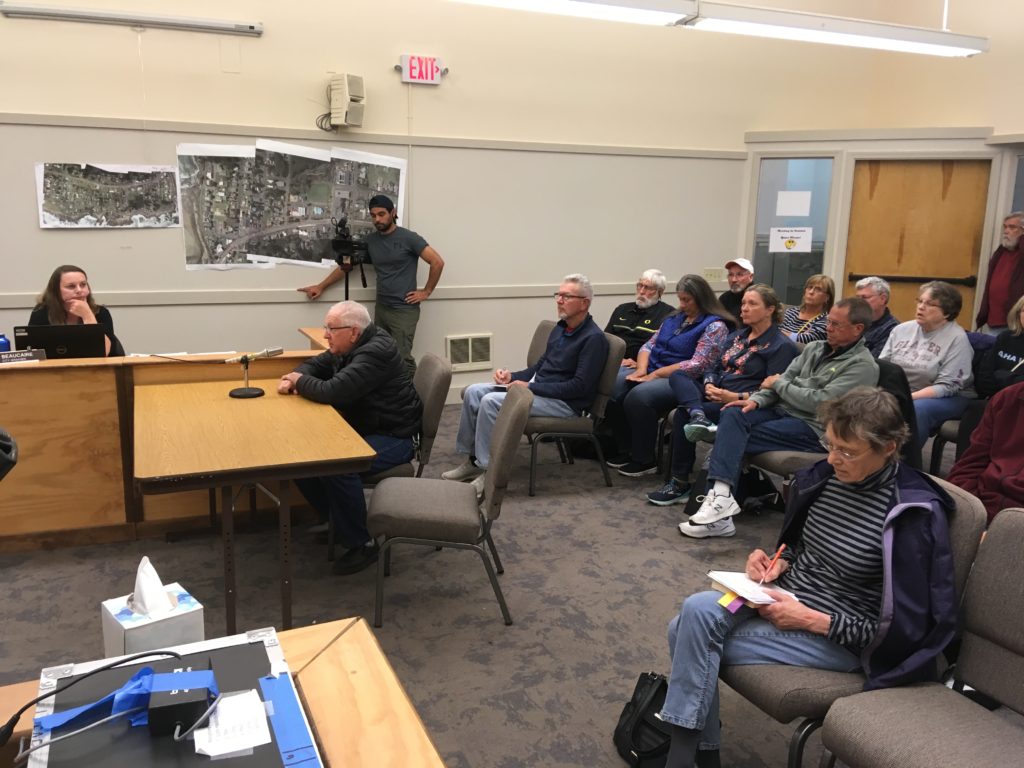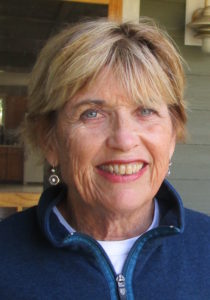
By QUINTON SMITH/YachatsNews.com
The Yachats City Council voted unanimously Wednesday to continue a controversial 125-license limit on vacation rentals in the city, its first major step to update its regulations governing use of houses for short-term stays.
Yachats remains one of two Oregon cities putting a specific limit on the number of licensed rentals, although cities across the United States and around the world are grappling with the contentious issue of how people use their property versus the desires of local residents for livable neighborhoods.
The council had to act Wednesday in order to keep a license limit in its city ordinance. Although the city has had some kind of rental regulations on the books since 1992, the cap on licenses was a two-year trial and due to expire Oct. 15.
The council has also spent at least four meetings discussing and reaching consensus on 10 other possible changes to vacation rental regulations. It expects to finish that work at either its Oct. 16 or Nov. 7 meetings.
The council has been flooded with letters and emails on the issue and listened Wednesday as 10 people testified for and against the license limit. All five acknowledged the difficulty of the issue, the value of short-term rentals in a tourist town, but also the desire to keep residential neighborhoods from being over-run by visitors coming and going.

“There needs to be a balance,” said Mayor John Moore. “Some people think we want to get rid of vacation rentals. No. We want a balance.”
City staff recently reported that there are a total of 141 vacation rental licenses, that 111 were being used regularly, eight were being used very little, and 22 not being used at all. One of the questions the council will tackle next is whether to require license holders to use, and not just hold, their permit.
The cap on the number of licenses is intertwined with the city not allowing automatic license transfers to heirs or to new owners during a property’s sale. Until the number of active licenses drops below 125, someone buying a house in Yachats – with or without a current license — cannot get one.
Opponents say that limits their ability to afford a vacation home in Yachats, drastically changes their established estate or retirement planning, and could be a “taking” of property by government.
“The courts don’t take kindly to that,” said Doug Cochrane of Olympia, Wash., who owns a vacation rental on Ocean View Drive and is trying to sell an adjacent lot. “This is an assault on your own citizens … do you have money to fight this in court?”
Candy Neville of Eugene owns an 8-bedroom vacation rental on King Street and has organized a group of at least 40 license holders and supporters called Yachats Alliance. She said the group will be discussing whether to hire a lawyer to challenge the city’s cap and possible other changes to regulations.
“Stay tuned,” she said after Wednesday’s council meeting.

Sweet Homes Vacation Getaways, which is based in Yachats, manages 80 rentals on the central Oregon coast and has 45 employees, has consistently testified against the city’s proposed cap and regulation changes. On Wednesday, its operation manager, Jaime Michel, told the council the company would be pulling its volunteer efforts and donations in Yachats and aiming those “to a more welcoming community.”
In her comments to the council, Neville said that she and her group consider the cap a limit or taking of their property, that vacation rentals are legitimate businesses, and to consider the option of “grandfathering” current license holders.
“Deprive no one,” she asked.

That drew a sharp rebuke from Mary Ellen O’Shaughnessey, a Planning Commission member who lives on Marine Drive. She called the issue one of “community” versus “commodity” and that most vacation rental owners and full-time residents “just view the community differently.”
She also asked Yachats Alliance members to better understand the impact of a steady stream of visitors in residential areas.
“I don’t have neighbors,” O’Shaughnessey said. “I have people moving in and out every week. Finding the middle ground is important and a 125 license cap to me is the middle ground.”
After short statements, council members agreed.
Councilor Jim Tooke, who moved to Yachats four years ago, said he opposes the strategies of national rental companies such as Vacasa, Airbnb and VRBO.
“This is a Silicon Valley model … break something, blow something up,” Tooke said.

Other proposed regulation changes will be debated again at one of the council’s next two meetings. In meetings this summer the City Council reached a consensus to:
- Continue to prohibit transfer of a license to either heirs or buyers of a vacation rental property;
- Not allow a buyer of a vacation rental property to apply for and immediately get a city license;
- Allow people holding but not using a vacation rental licenses to renew them;
- Continue to exempt five vacation rental properties from a four-bedroom rental limit established in previous ordinances;
- Require applications for new vacation rental licenses for homes in residential zones to go through a conditional-use approval process with the Planning Commission;
- Raise fees to $150 for the first vacation rental inspection and to $100 for any subsequent re-inspection and require those every two years.
- Establish a waiting list of some sort on Feb. 1, 2020, 30 days after new licenses go into effect.
- Agreed to a more than doubling of yearly license fees to $500 to $900, depending on the number of bedrooms, which would raise about $72,000 if all 141 licenses are renewed.
- Agreed to require licenses for people renting out a bedroom or two for short-term stays, but not put any restrictions on rentals longer than 30 days.
- Not put restrictions on large gatherings at vacation rentals, instead responding to complaints about parking or noise using current city codes.


